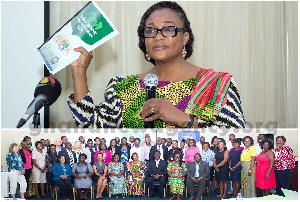The Millennium Development Authority (MiDA) on Monday launched a Social and Gender Integration Plan (SGIP), which contained the Action Plan, to address social inequalities among women, men and vulnerable groups regarding access to energy or electricity.
The Plan intended to resolve obstacles that hindered the accessibility of energy by the vulnerable groups in society, especially women in the implementation of the Ghana Power Compact.
In addition, the Plan required that all programmes and activities under the Compact should take into consideration social and gender inclusion to address any inequalities between men and women as well as promote gender responsiveness within the various energy institutions in the country.
Mr. Owura Kwaku Sarfo, the Chief Executive Officer of the MiDA, said this when he launched the Social and Gender Integration Plan Document and opened a Four-day training workshop for officers and focal persons of the implementing agencies in Accra.
He said there was a widespread perception that energy policies were gender neutral, but however, said, many people disagreed with that assumption because energy policies were sometimes not gender neutral and replete with many inequalities.
It is against this backdrop, Mr. Sarfo said, the Ghana Power Compact, with funding from the Millennium Challenge Account, considered social and gender inclusion issues so important, thus, prescribed the implementation of the SGIP as a pre-condition to the disbursement of the programme’s funds.
He said: “The Plan as required by the Compact, in essence, incorporates findings of a comprehensive social and gender analysis, identifies approaches for regular, meaningful and inclusive consultations with women and other vulnerable and under-represented groups.
“It also consolidates the findings and recommendations of project specific social and gender analysis, and set forth strategies for incorporating these findings of the SGIP to the final project designs as appropriate”.
The SGIP document, he said, was accepted in June this year, which would serve as an operating and monitoring tool, to ensure that social and gender inclusion were integrated in the project designs, implementation, monitoring and evaluation.
Madam Otiko Afisa Djaba, the Minister of Gender, Children and Social Protection, commended MiDA for being the first institution to have developed a SGIP document for the nation.
The government, she said, had prioritised issues of gender because Ghana’s President, Nana Addo Dankwa Akufo-Addo, had been made the African Union Gender Champion and Co-chairperson of the Sustainable Development Goals; therefore, the issues of gender had been brought to the frontline of development.
She said the Ministry existed to ensure integrated Ghanaian society, equal opportunities for both men and women regarding access to electricity and safeguard the rights of children.
The Minister said: “We seek to empower the vulnerable persons, especially the girl child, women, the socially excluded, the aged and persons with disability; therefore, the project aims at achieving gender mainstreaming”.
Madam Afisa Djaba gave the assurance that, the Ministry would co-operate fully with the implementing agencies for the nation to derive maximum benefit and ultimately reduce poverty.
She said the Ministry had signed a Memorandum of Understanding with MiDA to signify the collaboration and its commitment of making available technical expertise on gender and social inclusion issues to drive the implementation of the Plan.
Madam Elizabeth Feleke, the Deputy Resident Coordinator of the Millennium Challenge Corporation, on her part, said the SGIP was in line with the MCC’s mission to spur economic growth.
She said the Plan would boost confidence of the vulnerable groups, create awareness, increase access to resources and transform the structures of the implementing agencies.
Madam Feleke said the Plan was a smart investment and an indispensable tool that would engender development and urged the implementing agencies to perform their task with passion to ensure it success.
Dr. Cherub Antwi-Nsiah, the MiDA Director in-charge of Social and Gender Inclusion, in a presentation on the SGIP, said the document provided analysis of the gender and social issues in Ghana’s power sector and described the socio-economic issues underlining the inequalities in the society.
She said the execution of the Plan would increase employment opportunities for women and disadvantaged groups in the energy sector, reduce electricity costs to legal rate payers through lower cost reflective tariffs and ensure safe and secure work environment for the citizens.
Some of the implementing agencies of the SGIP include the Electricity Company of Ghana, the Energy Commission, the Ghana Standard Authority, the Environmental Protection Agency, the Lands Commission, the Volta River Authority and the Public Utility and Regulatory Commission.
Business News of Wednesday, 11 October 2017
Source: ghananewsagency.org

















